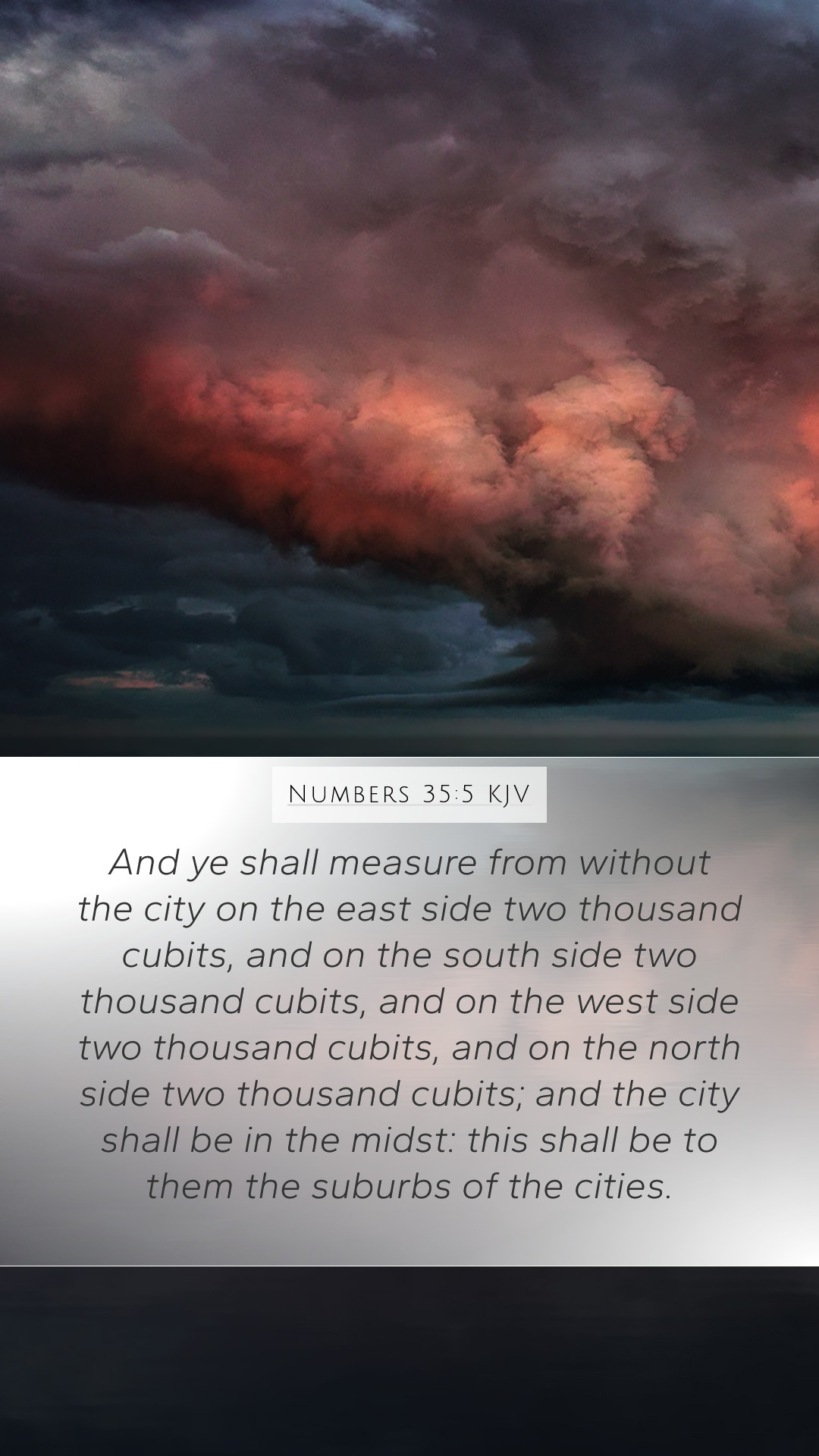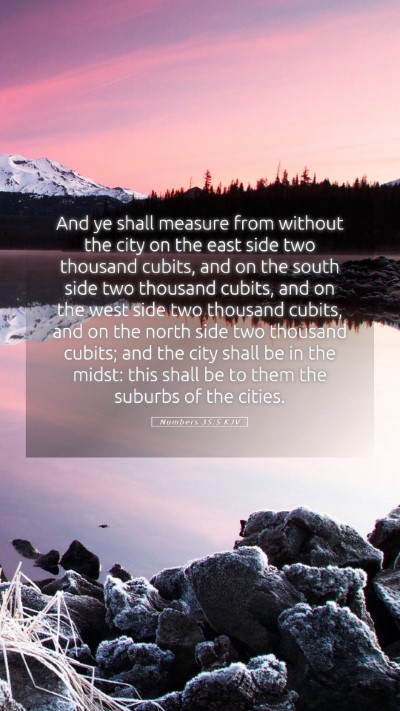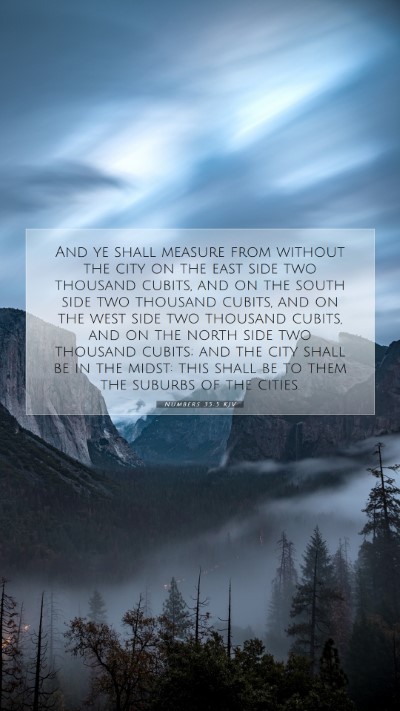Bible Verse Meaning: Numbers 35:5
Understanding Numbers 35:5 is essential for grasping the structure and intent behind the allocations of towns for the Levites and cities of refuge. This verse is part of a larger discourse on the laws given to the Israelites, aimed at providing clear guidelines for justice and community life among God’s people.
Verse Text
"And ye shall measure from outside the city on the east side two thousand cubits, and on the south side two thousand cubits, and on the west side two thousand cubits, and on the north side two thousand cubits. And the city shall be in the midst: this shall be to them the suburbs of the cities."
Summary of Insights
- Contextual Background:
Numbers 35 contains instructions given to the Israelites regarding the allocation of cities to the Levites, who were tasked with spiritual and priestly duties. The establishment of cities of refuge was crucial for maintaining justice and providing safety.
- Significance of 'Measurement':
The specific measurements indicate a design of fairness and accessibility, ensuring that the cities were placed in a way that all individuals in the tribe would have access to them without favoritism.
- Spiritual Implications:
This verse emphasizes God's desire to provide refuge and justice, reflecting His character as a protector of the innocent and a preserver of order within the community.
- Physical and Symbolic Boundaries:
The dimensions signify both physical boundaries and a spiritual concept of safety. The references to "suburbs" highlight a safe zone around the cities, illustrating the importance of having a protective space for those who seek refuge.
Bible Verse Explanations
Commentaries by Matthew Henry, Albert Barnes, and Adam Clarke provide deep insights into the meaning of this verse:
- Matthew Henry:
Henry emphasizes the architectural and communal aspects of the cities, noting they serve not only as places of refuge but also symbolize the grace and mercy of God toward sinners who flee from judgment.
- Albert Barnes:
Barnes focuses on the systematic design of the cities, outlining the practical aspects that reflect God's justice. He points out the balance and fairness in the allocation of space for each city, ensuring equitable choices for the community.
- Adam Clarke:
Clarke discusses the cultural and historical significance of these measurements, relating them to customs of the time and highlighting how they would resonate with the community's understanding of boundaries and safety.
Related Bible Cross References
- Deuteronomy 19:2-4: Instructions for designating cities of refuge.
- Joshua 20:2-5: The actual implementation of cities of refuge.
- Hebrews 6:18: A New Testament reflection on sanctuary and hope.
- Exodus 21:12-14: The law concerning murder and manslaughter.
- Numbers 35:6: Further instructions on the cities of refuge for the Levites.
Application in Daily Life
This verse compels believers to reflect on the necessity of refuge, safety, and community in their daily lives. It invites a deeper examination of how they provide support to others seeking justice and peace. In modern terms, it reminds us of our responsibility to create safe spaces within our communities, echoing the heart of God found in Biblical teachings.
Bible Study Insights
Numbers 35:5 is rich for biblical exegesis and serves as an engaging point for Bible study groups, online Bible study, or individual reflection. By examining this verse along with its commentaries, participants can uncover layers of meaning that speak to both historical and present-day scenarios.
Further Study Suggestions
- Explore the concept of cities of refuge through various study tools, focusing on both the Old and New Testament perspectives.
- Consider the implications of justice in Scripture and how they can be applied in today's society.
- Discuss as a Bible study group how the principles of refuge and safety manifest in your community.
In conclusion, Numbers 35:5 extends beyond its textual meaning, prompting believers to engage with the essential themes of refuge, community, and divine justice. Through thoughtful study and interpretation, this verse can lead to profound insights into God’s character and His plans for humanity.


